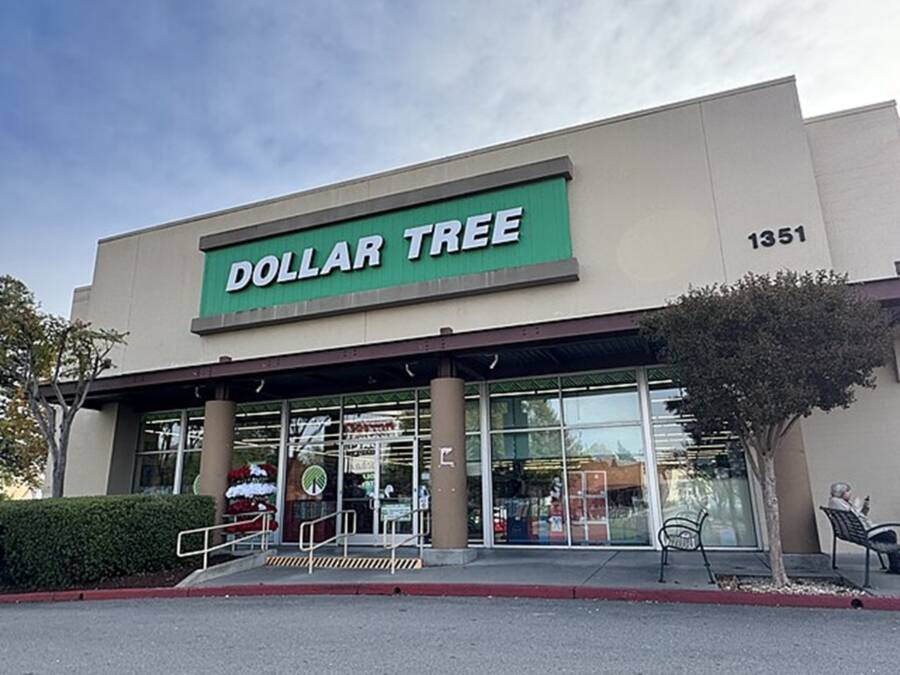Are you paying for any of these unnecessary insurance policies?
The key to financial stability is preparedness. This is a fact that applies to the world we live in today, and many Americans take this very seriously. It’s not a bad thing, but being too careful about this can lead to overestimation of costs. Many surveys show that a significant portion of Americans overestimate the cost of insurance policies, which leads to numerous unnecessary purchases.
But why is this happening? The anxiety we feel in certain moments of life, from a flat tire on our car to a sudden hospital visit, makes us want to always feel prepared because we know that when we are not, we have to spend a lot of money that we generally don’t have.
This is where insurance policies step in. They are meant to act as a shield that protects us when we face these unexpected situations, and they can be really helpful for those who are living paycheck to paycheck.
But this peace of mind they offer us makes us forget that not all insurances are the same, and this can make us fall into a trap and spend money on unnecessary insurance policies.
It’s great to be prepared, but what happens when you are too prepared? Read on and discover some of the most unnecessary insurance policies Americans are still spending their money on.

1. Burial insurance
Planning how things should go when you are no longer here is an act that helps you and even more it helps your family, especially when they’ll need to be going through such hard times. It’s incredibly responsible to have all of your final arrangements in order, but after asking a few financial experts, we’ve discovered that burial insurance might be too much.
This is our first example of unnecessary insurance policies you don’t need to waste your money on because they offer a poor return on investment. You are paying a sum of money over time, and in the end, this has a high chance of not being equal to the payout, which makes all of this more complex and the managing of costs more difficult.
What can you do in this case? Considering that this is one of the unnecessary insurance policies, you can focus on life insurance with a “rider” benefit. Riders are various add-ons that can cover some specific needs, such as burial expenses.
Also, instead of a traditional burial, which costs around $7,000 to $12,000, you can choose to be cremated, and this will be between $6,000 and $7,000 according to the national average.
2. Rental car insurance
Sometimes renting a car just happens. Maybe you need it when you are in a new city or you just want a more performant car than the one you have at home for a road trip. This is a normal part of life, but there is one little thing that bugs a lot of people: rental car insurance.
As you would expect, rental car companies heavily promote their own insurance products, but most of the time they are incredibly expensive. Agents are trying to convince customers that getting this insurance is the safest way out in case something bad happens and you’ll have to face astronomical out-of-pocket costs.
Many people get intimidated by this approach and accept the offer, but in reality, rental car insurance is just another one of the unnecessary insurance policies you don’t really need to pay for.
This can sound a little bit risky, but please hear us out: you have a chance that you are already covered for rental car damage. Sometimes your very own car insurance may also cover rentals.
Also, there are many credit cards out there that offer rental car insurance as a free benefit. What you can do is decline the rental car insurance offered by the rental company and simply pay for the rental car with your eligible credit card.
3. Home warranty coverage
This might sound like an excellent idea, especially for landlords and new homeowners who don’t want to deal with all the costs that come with fixing broken appliances and other issues in the home. It can be tempting, but is this worth it, or just another one of the unnecessary insurance policies? Let’s find out!
Unfortunately, there are some strict limitations that can convince many people not to opt for home warranty coverage. First of all, these warranties don’t let you freely choose the repair technicians. There is a specific network of approved providers, and you can pick only from there.
Then you should always be prepared for additional costs. Why? Many home warranty plans include a call-out fee for each service call, regardless of the repair outcome. Also, some of these warranties even have additional fees for user error or pre-existing conditions. This can result in an unexpected bill, and nobody wants that.
Considering all of these, we can easily say that this is one of the unnecessary insurance policies because who wants to pay money just to pay even more money in the end? One thing you can do is set aside money for home repairs, and in case something happens, you’ll always be ready. Also, try to maintain your appliances because if you properly take care of them, they can last you for a long time without breaking down.
4. Flight insurance
Planning to book a flight? Be careful because companies can charge you extra for flight insurance. Even if you think that this sounds important, this is a skippable expense. But why is this one of the unnecessary insurance policies?
In case of trip cancellations, delays, and medical emergencies, flight insurance can cover you. However, airlines are obligated to take care of these situations themselves, and this is why this insurance can be a waste of money.
When a flight gets canceled, the airline must rebook you on the next available flight or offer a full refund. For delays, they should give you compensation or meals depending on the situation. And in case something happens and you get injured, there are international agreements that require compensation for injured passengers.
There are more types of flight insurance, and depending on many factors, such as coverage and trip duration, it can cost a few dollars or hundreds of dollars. Maybe a few dollars don’t make a difference, and it might be a good investigation for your peace of mind, but when the price is higher, be sure that this is one of the unnecessary insurance policies.
Also, many credit card companies and independent businesses provide travel insurance packages that cover airline cancellations, delays, and medical emergencies. Some airline-specific credit cards even provide trip cancellation and other travel protection advantages for purchases made with their card.

5. Identity theft insurance
When people hear about identity theft, they get scared. This is not a pleasant topic, especially in this era when AI and robots get more intelligent and thieves can steal your identity using various scams and tricks that are sustained by the new and evolving technology.
Everybody wants to be shielded against crimes like this, and identity theft insurance can look like the perfect solution. But is it the best way to protect yourself against scammers?
Let’s see how this insurance works and also discover if it’s one of the unnecessary insurance policies or not. In case you lose money because of identity theft, some of these policies should offer reimbursement for out-of-pocket expenses that are lost during the identity theft resolution (lost wages and legal fees).
Then, there are some programs that are more focused on the idea of protecting you and provide identity monitoring services that are able to detect any suspicious activity and also, in case of theft, should assist with a credit report.
But most credit card issuers will offer you identity theft protection as a basic benefit. You don’t have to pay for it, and they will offer their full support when needed. Also, identity theft insurance has offered limited protection, and most of the time, how much protection you get is based on coverage and reimbursement amounts.
You can start by analyzing your credit card benefits and seeing if they offer identity theft protection. Then don’t forget to monitor your credit reports regularly, always be mindful about your online activity, and practice safe browsing.
6. Extended warranty coverage
When you purchase electronics and other various gadgets, retailers are pushing extended warranty coverage, and they market it as the best way to protect yourself from potential future issues. A smart choice that offers you peace of mind and, most of the time, a reasonable price, right?
But before agreeing to an extra expense, you should decide if this is one of the unnecessary insurance policies or not.
Generally, any electronic device you buy comes with at least one year of the manufacturer’s warranty, and this covers all the defects or malfunctions that might appear in the first year after purchase. Statistically, electronic failures are most likely to occur shortly after purchase and not years later.
Again, your credit card might save you. If you buy any electronics with it, there is a chance that you automatically get free extended coverage through your card provider. Also, think about the repair costs. If the cost of insurance exceeds the repair costs, it’s not a good deal to pay for the insurance.
7. Mechanical breakdown coverage
Everybody has car insurance, or at least should have one, but not so many people know about MBI, or mechanical breakdown insurance. Once you hear about it, you can conclude that this is a good insurance to have because it covers repair costs for non-accident-related issues and can be helpful when unexpected problems arise.
Standard car insurance covers the costs that appear following accidents, but this one covers any problem that can appear from engine to transmission and other malfunctions of the essential components.
Unfortunately, despite sounding like a good idea at first glance, BMI is another one of the unnecessary insurance policies because insurance companies frequently have specific criteria about what is and isn’t covered under MBI policies.
This means you can get a surprise, and even if you pay, you will not get your car repaired because those repairs are not eligible. For example, normal wear and tear, maintenance issues, or problems that arise due to a lack of upkeep have a high chance of being excluded.
Getting denied like this can easily leave you frustrated, and this is a very good reason to not pay for insurance that can cause more trouble than solving anything. The best approach is to build a fund you are going to use for mechanical repairs instead of spending money on various insurances that might turn out to be useless in the end.
8. Whole life insurance
Life insurance is amazing, and everyone should have one, but what about whole-life insurance? This one is generally marketed as a hybrid product that combines insurance coverage with investment-like benefits. Sounds good, right?
Since this is not term life insurance, you will be covered lifelong, and your beneficiaries will receive a payout no matter when you pass away. This is the thing that makes it so appealing.
The thing is that whole life insurance can cost a fortune compared to term life insurance, and this can be a real burden for most people. This higher cost is partly due to the policy’s investment component, which builds cash value over time.
Financial experts advise us that there are better ways to save money for your loved ones, and this is again another one of the unnecessary insurance policies.
What you can do is choose a less expensive term life policy and then use the money you could have spent on premiums for whole life insurance and invest it in retirement accounts or other assets.

9. Pet insurance
If you have a pet, you want to take care of them as well as possible, and this means being prepared for unexpected veterinary expenses. This is the exact reason pet insurance appeared on the mark. But according to studies, this is one of the unnecessary insurance policies people are paying for, and we want to tell you more about it.
In 2011, Consumer Reports conducted a study that followed the life of a 10-year-old Beagle named Roxy as a case study. Over her lifetime, this dog accumulated $7,026 in vet bills. This is some money, but after Consumer Reports compared all the money their owners paid for pet insurance and premiums, they found that no policy would have saved her owners money.
Even when they doubled that sum of money, only half of the paid insurance was used. So what happened to the other half? Well, that is lost money!
Because people are afraid of hefty veterinarian bills, they are tempted to pay for pet insurance, but what’s the point of this if, in the end, you end up paying more than double? Sometimes paying for each vet bill when something happens to your pet might be more cost-efficient than pet insurance, and this should help you decide if you need one or not.
10. Dental insurance
Some people think that dental insurance sounds like a good addition to your healthcare plan, especially considering how expensive dental services are and how important regular checkups are.
Having good teeth is all about your overall well-being, and combining all of these factors can make the idea of dental insurance more appealing. However, the reality of dental insurance is more complicated, and for many people, it may not be worth the cost.
The first problem with dental insurance and one reason we consider them unnecessary insurance policies is the fact that they have very limited coverage. Compared to basic health insurance, dental insurance comes with a low annual payout cap, which means more money you need to pay out of your pocket even for minor interventions.
What we mean is that if you have one set of X-rays covered per year, if you use it and need another one the same year, you’ll have to pay for it. Also, many dental insurance policies have long waiting periods for more complex procedures such as crowns, implants, or orthodontics, which means you’ll be paying before you are even able to use the benefits.
If you want to learn more about how insurance works, this book might be a good read: The Fundamentals of Insurance: Theories, Principles and Practices
You should also read: Don’t Let These 5 Couponing Mistakes Sabotage Your Budget















One Response
I would like to hear something about these Extended Car Insurances that are being pushed.
I had an Extended (VERY popular) Warranty that should have covered a problem but would not because a part that made the broken part (AC) work was not covered! These insurances are not cheap.